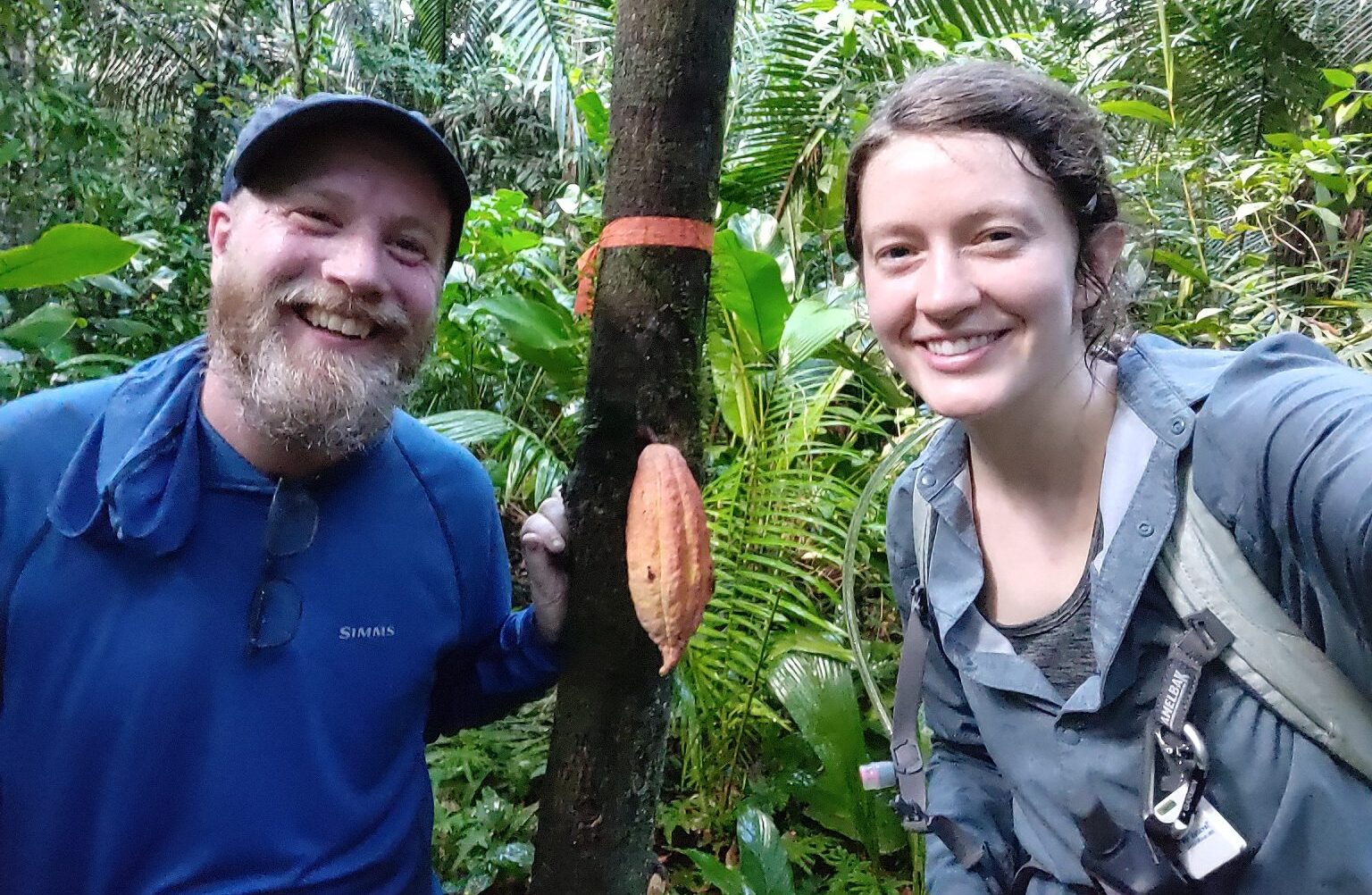
The summer of 2022 was different for one entomology and plant pathology graduate student. Holly Brabazon, a doctoral student pursuing a concentration in bioinformatics, genomics, and molecular interactions, found herself over 2,500 miles away from Knoxville, TN, researching the pollination of Theobroma cacao, or the cocoa plant, in Belize.
Cacao is mainly pollinated by biting midges, flies that are around the size of a pin head. Despite being a main pollinator of cacao, the midges often do a poor job pollinating cacao trees. “Successful cacao pollination is problematic in many regions. Only around 10%-20% of the flowers produced by a cacao tree are successfully pollinated” stated DeWayne Shoemaker, department head and professor in the Department of Entomology and Plant Pathology.
Brabazon and Shoemaker were stationed at the Belize Foundation for Research and Environmental Education to collect leaf samples and gather information from wild cacao trees from June 4 – 20. “A first step to better understand pollination in cacao is to study pollination of wild-growing cacao” Brabazon stated. BFREE is an organization that strives to create sustainable development opportunities for Belizeans by integrating conservation, scientific research, and environmental education. To learn more about BFREE, visit bfreebz.org/.
To read Brabazon’s full article on her summer research experience, visit bfreebz.org/pollination.